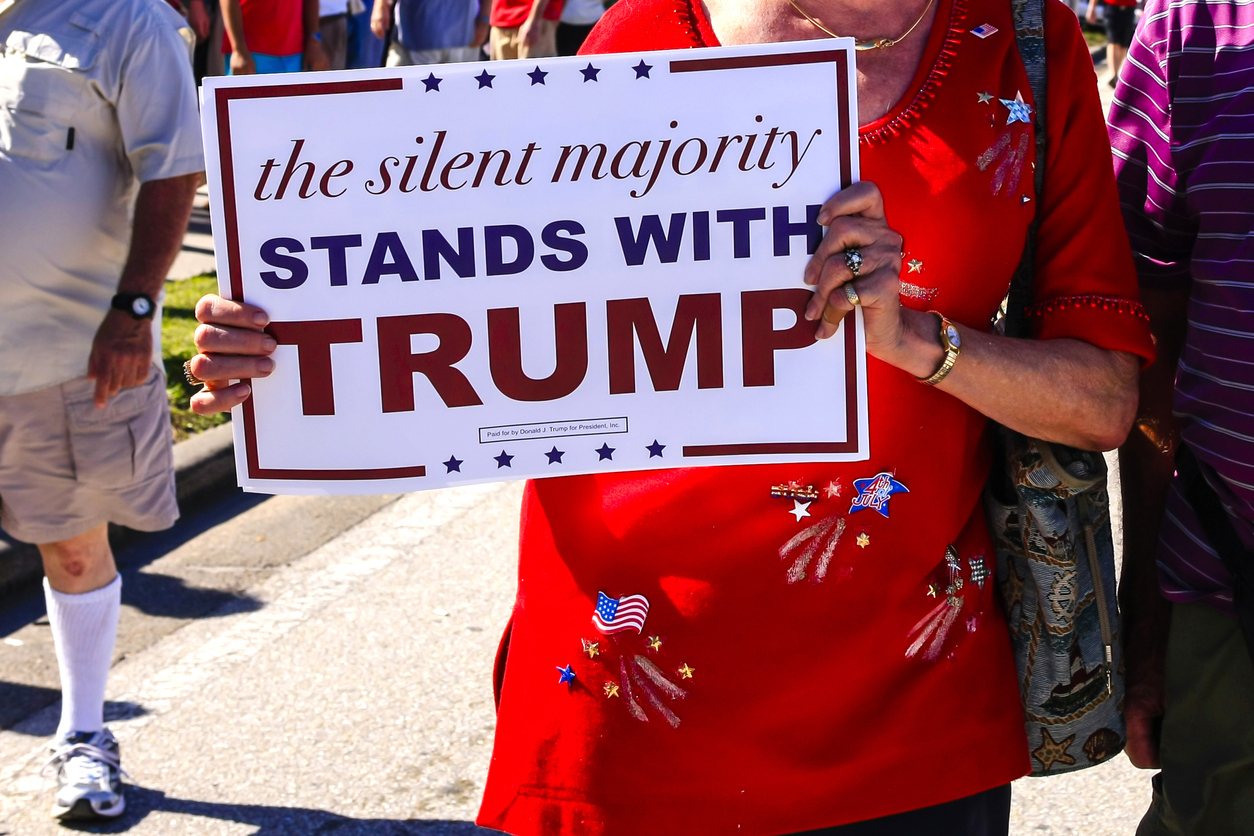6 hot-button topics communicators should prepare for in the Trump administration
DEI, ESG and more are set to shift in a big way.

President-elect Donald Trump has promised to usher in a period of radical change for the United States. Bolstered by Republican control of the Senate, likely Republican control of the House and a conservative-leaning Supreme Court, he is positioned to alter aspects of both American government and culture.
The precise form of these changes remains to be seen, but it’s certain that at least some of these reforms would impact the work of communicators.
PR Daily caught up with Luke Hartig, CEO of Gravity Research, a firm which specializes in societal and reputational risk intelligence for major firms.
Here’s what Hartig sees on the horizon – and how communicators can prepare now.
- DEI shifts, but does not disappear.
“I think DEI is one of the biggest risks that companies are going to face about this election,” Hartig said. Even under a Democratic presidential administration, DEI has seen a number of blows, most notably the affirmative action Supreme Court case, the success of activists like Robby Starbuck pushing companies with more conservative customer bases to cut some programs, and backlash from state governments.
With the power of the executive branch, Trump could institute Department of Labor rules that impact DEI programs. The SEC could halt various DEI programs in shareholder proposals. The administration could support anti-DEI lawsuits – or withdraw its support from ongoing pro-DEI defenses.
But even outside what the president can do directly, the change in political control could embolden anti-DEI activists, like Starbuck, Hartig said.
“Are the anti-DEI legal activist groups just better funded and better able to take (on companies) after this? Is the public perception of DEI changed such that for any activist or media source who’s anti-DEI, they feel like they’re working in fertile ground?” Hartig asked rhetorically.
But on the other hand, he does not see DEI disappearing altogether, in large part because of demands from employees.
“It’s a delicate dance that companies will do to try to de-risk themselves from the things that are most likely to result in consumer backlash or lawsuits or regulatory action, while still maintaining some core commitment to having a diverse workplace,” Hartig said.
Companies will also have to balance competing needs and wants from the workers themselves, however. Hartig noted that the political divide between employees with a college education and those without grew exponentially during this election. According to exit polls, 56% of voters without a college degree broke for Trump, compared to just 42% of college educated voters.
“I think the takeaway for companies is to really know your employees, not just the ones that you see most frequently in the C-suite or interactions with top executives, but really know what your employees are like, writ large,” Hartig said. “What do they care about? How do they think about these issues? How might they have voted?”
- LGBTQ+ issues move to the fore.
LGBTQ+ issues, particularly issues around transgender rights, were a massive part of the Republican closing arguments in this election. This is a continuation of several years of backlash against the expansion of trans rights, particularly against companies who have supported trans influencers or offered trans friendly products in stores.
Hartig notes that Trump has a number of levers he can pull to impact trans rights, especially in schools, such as Title IX. It’s possible these moves could trigger employee backlash and calls for additional activism from employers, but Hartig is already seeing a hesitance for employers to take the strong stances on social issues they once did during the pandemic era. Namely, they’re less likely to sign onto open letters or activist group pledges, Hartig said.
“The transgender rights issue is something I think that that is going to continue to be fraught. It’s certainly an issue that President-elect Trump played to his electoral advantage, but it’s also an issue that I think a lot of companies are wary about wading into too much just because of the really split opinions on it,” Hartig said.
- Tension between employers and workers.
But as we’ve noted, Hartig expects that many workers will continue to press their employers to show up on these issues in the ways they have in the past. “We know that employees still want to work for employers where their values align with their own, where they can bring their whole selves to work, where the company has some things that they believe beyond just the actual profit and loss of that company,” Hartig said.
At the same time, employers are finding themselves needing to identify their core values rather than trying to speak out on every issue.
“If you are a bank that cares about racial equity, you are maybe not out there speaking out vocally about every racial equity issue,” Hartig said. “But you might say, ‘hey, what can we do to improve our support to Black entrepreneurs?’ Things that are very clearly aligned with what a bank does, and it feels like it fits the purpose of their company, makes their employees feel like they work for an employer whose values align with their own, but maybe doesn’t pull them into some of the hot-button political issues.”
- ESG evolves.
Environmental regulatory rollbacks are also all but certain to be part of the second Trump administration. From EPA changes to withdrawal from global climate treaties, the role of ESG in corporate life could fundamentally shift. But Hartig predicts that the Trump administration may be slightly softer on environmental issues than they were during his first term. He noted that many of the same energy companies who supported Trump’s election are not purely oil and gas companies, but increasingly have holdings in renewable energy as well.
But for other companies, especially B2C, they’re still likely to find themselves torn between the government, the people and their own promises.
“They’re gonna be stuck between this rock and a hard place of a Trump administration that’s maybe antagonistic and skeptical of a lot of the climate-focused policies that companies have placed and on the other hand, a real push from other (countries) that they operate in, from their consumers to maintain those commitments to environmentalism,” Hartig said.
- Mass deportations could put pressure on companies to speak.
One of Trump’s most incendiary promises has been mass deportations of undocumented immigrants. This certainly will have massive impacts on the labor pool in many industries, including agriculture and construction, but an operation at the predicted scale – perhaps a million people deported – would also play out in dramatic ways that could ripple to every industry.
Hartig said that the operation would require the mobilization of not only law enforcement, but the National Guard and potentially other military as well. These arrests would happen, in many cases, in large urban areas, with cameras rolling both from civilians and from journalists. These dramatic images could put pressure on companies – potentially via employees – to speak.
“This idea of companies being the more trusted institutions in American society, and that call for them to be kind of the voice of civility, would be strong,” Hartig said.
- The #resistance returns.
During Trump’s first administration, those who disagreed with his politics became loud, putting pressure on companies to either stand up to Trump’s policies – or to avoid praising him or working with him in any way. They often organized around #resistance on social media. That could return in this second term, Hartig said. He specifically referenced a boycott around Goya products after its CEO praised Trump – but data shows that despite the social chatter, sales actually rose.
“That general reigniting of culture wars and activism pressures on companies in what ways and on which issues, I think it still remains to be seen,” Hartig said.
Allison Carter is editor-in-chief of PR Daily. Follow her on Twitter or LinkedIn.







